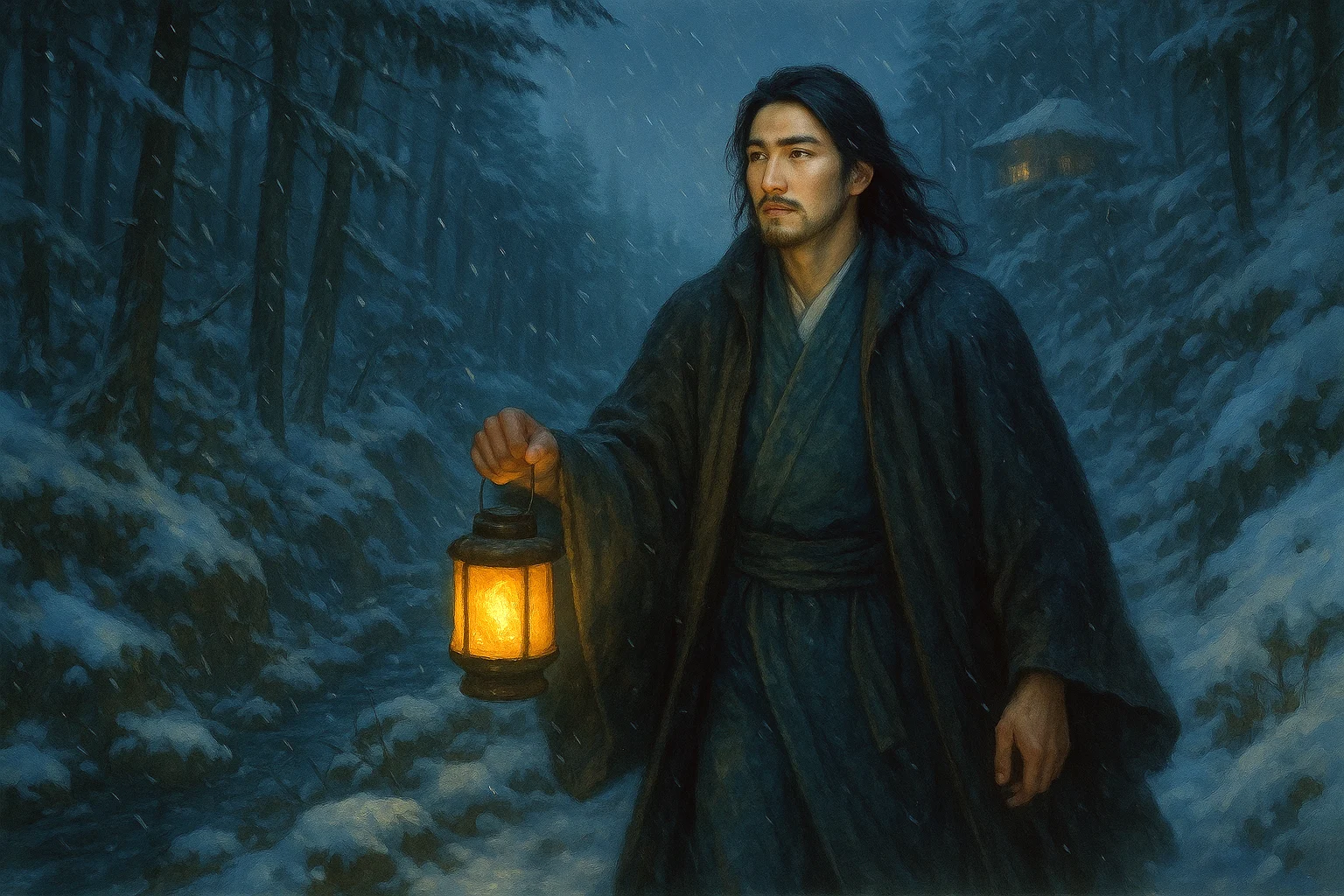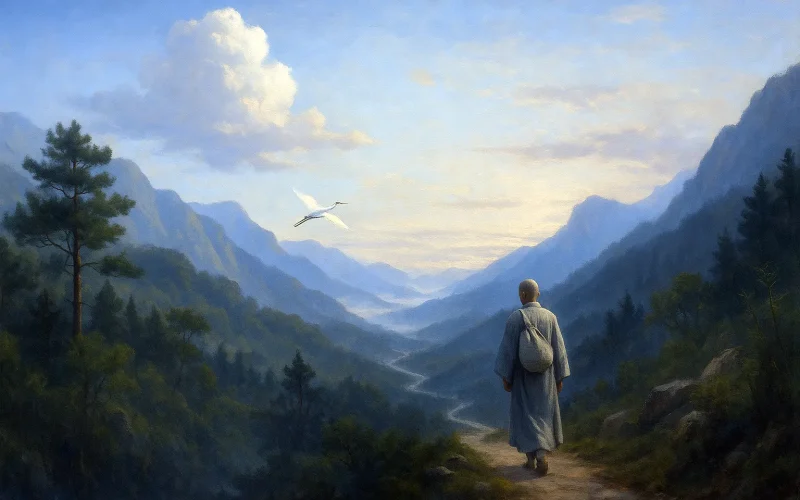When the Emperor sought guidance from wise men, from exiles,
He found no calmer w i sdom than that of young Chia
And assigned him the foremost council-seat at midnight,
Yet asked him about gods, instead of about people.
Original Poem
「送上人」
刘长卿
孤云将野鹤, 岂向人间住。
莫买沃洲山, 时人已知处。
Interpretation
Composed during the poet's autumn sojourn in Yangzhou, this work was inspired by his ascent of Duke Wu Platform - a historical site northwest of Jiangdu (modern Yangzhou). Originally built as an archery tower during the Southern Dynasties, the structure gained its name from subsequent military reinforcements. Through this ancient vantage point, the poet contemplates historical cycles while expressing the poignant nostalgia of a traveler amidst autumn's desolation.
First Couplet: "古台摇落后,秋日望乡心。"
Gǔ tái yáoluò hòu, qiūrì wàng xiāng xīn.
The ancient platform stands in autumn's decay / Stirring homesick thoughts this somber day
The opening juxtaposes architectural antiquity with seasonal decline, establishing the poem's melancholic tone. "Autumn's decay" (摇落) becomes both literal description and metaphor for transience, immediately evoking the poet's layered nostalgia.
Second Couplet: "野寺人来少,云峰水隔深。"
Yě sì rén lái shǎo, yún fēng shuǐ gé shēn.
Few visit this wilderness shrine / Cloud-peaks beyond deep waters shine
The desolate temple and distant peaks visualize the poet's isolation. The "deep waters" (水隔深) symbolize both physical separation and emotional distance from homeland, intensifying the solitude.
Third Couplet: "夕阳依旧垒,寒磬满空林。"
Xīyáng yījiù lěi, hán qìng mǎn kōng lín.
Setting sun lingers on ancient fort / Cold chimes saturate the empty court
This couplet achieves sublime tension: the visual stillness of sunset on ruins contrasts with the auditory saturation of temple chimes. The "cold chimes" (寒磬) - both literal sound and spiritual chill - resonate through emptiness, becoming the poem's most haunting image.
Fourth Couplet: "惆怅南朝事,长江独至今。"
Chóuchàng Náncháo shì, Chángjiāng dú zhì jīn.
Brooding on Southern Dynasties' fate / While Yangtze flows unchanged of late
The conclusion elevates personal nostalgia to historical meditation. The eternal Yangtze (长江) underscores human impermanence, its continuous flow mocking the vanished Southern Dynasties' (南朝) political dramas.
Holistic Appreciation
The poem constructs a layered meditation where personal displacement mirrors historical ephemerality. Moving from immediate autumn scenery (I) to spatial isolation (II), then to sensory-rich ruins (III), before culminating in philosophical reflection (IV), it progresses like a camera pulling back from close-up to cosmic perspective. The "cold chimes" moment particularly achieves what Tang aesthetics termed "boundless serenity within desolation" (萧散简远).
Artistic Merits
- Temporal Palimpsest: The platform becomes parchment where past and present inscriptions overlap
- Sensory Counterpoint: Visual ruins versus auditory chimes create multidimensional melancholy
- Historical Scale: Personal homesickness expands to dynastic contemplation without losing intimacy
- Elemental Symbolism: The Yangtze embodies time's indifference to human endeavors
Insights
This medieval poem speaks profoundly to modern experiences of historical consciousness and personal dislocation. The poet's technique of using architectural ruins as portals to temporal reflection suggests how physical spaces can trigger layered memory. For contemporary readers navigating rapid urbanization, the work offers a model for engaging with historical sites not as dead relics but as living connectors across time. The concluding Yangtze image particularly resonates in our era of climate change - the river's enduring flow now ironically threatened by human activity.
Poem translator
Kiang Kanghu
About the poet

Liu Zhangqing (刘长卿) was a native of Xian County, Hebei Province. He studied at Mt. Songshan when he was young, and later moved to Jiangxi, where he received his bachelor's degree in 733 A.D. He also belonged to the Wang and Meng school of poetry. His poems belonged to the school of Wang and Meng, and he was most famous for his five-character poems, and was also most conceited, once thinking that he was "the Great Wall of five-character poems", which meant that no one could surpass him.












